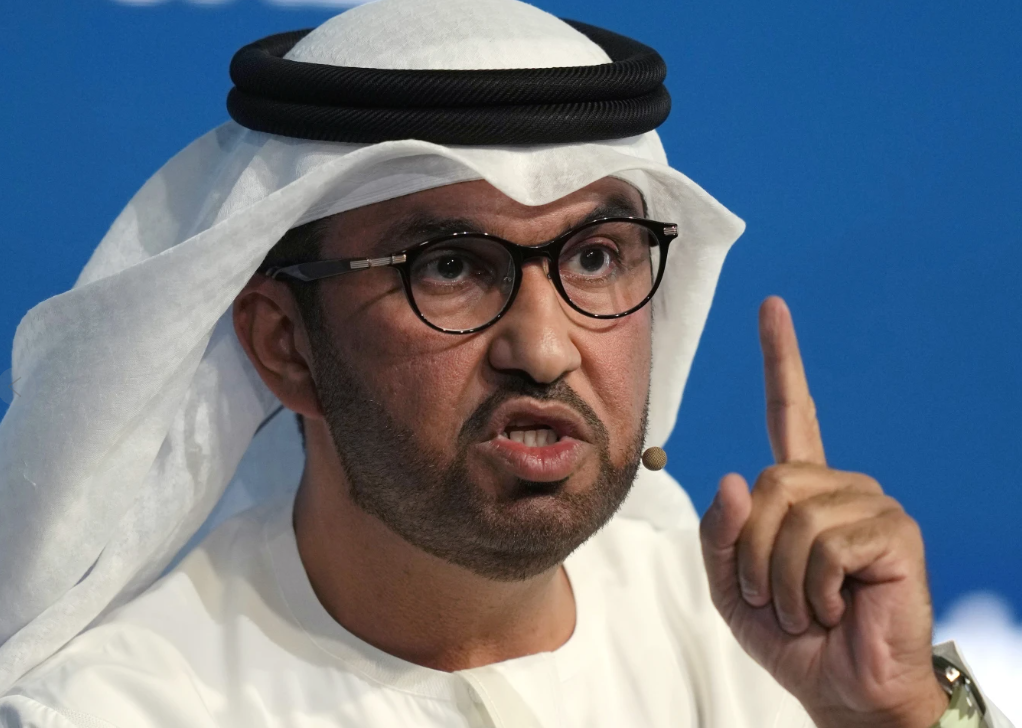UAE’s president-designate for UN COP28 offers full-throated defense of nation hosting climate talks. The Emirati president-designate for the upcoming United Nations COP28 climate conference offered a full-throated defense Saturday of his nation hosting the talks, dismissing those who “just go on the attack without knowing anything, without knowing who we are.”
Climate activists roundly criticized Sultan al-Jaber’s appointment as the president-designate of the talks because he serves as the CEO of the Abu Dhabi National Oil Co., which is seeking to boost its production of carbon-emitting crude oil and natural gas.
Back before a quiet, hometown crowd and an amenable moderator after attending the U.N. General Assembly, al-Jaber pointed to his 20 years of work on renewable energy as a sign that he and the Emirates represent the best chance to reach a consensus to address climate change worldwide.
“The world only, for whatever reason, views us as an oil-and-gas nation,” he said. “We have moved beyond oil and gas 20 years ago. We embraced the energy transition 20 years ago.”
He added: “We don’t become passionate or ideological or so emotional. We’re business-oriented. We’re results-driven.”
UAE’s president-designate for UN COP28 offers full-throated defense of nation hosting climate talks
Al-Jaber, a 50-year-old longtime climate envoy, is a trusted confidant of UAE leader Sheikh Mohammed bin Zayed Al Nahyan. He’s been behind tens of billions of dollars spent or pledged toward renewable energy in the federation of seven sheikhdoms on the Arabian Peninsula — but also leads an oil company that pumps some 4 million barrels of crude a day and hopes to expand to 5 million daily.
Addressing the world’s reliance on crude oil, al-Jaber issued a challenge to the audience listening to him at Dubai’s visually striking Museum of the Future: Tell him how to immediately stop the use of all fossil fuels.
“Some are promoting the fact that we can just unplug the world from the current energy system and with a flick of a switch, we can just initiate a new energy system,” he said. “That doesn’t work. It won’t work. … So we need to sober up and be more realistic and more practical.”
But the fact that al-Jaber repeatedly defended himself and the country from activists’ criticism is incredibly telling in the Emirates, an autocratic nation that while a key U.S. business and military ally still tightly controls speech, bans political parties and criminalizes labor strikes.
As the profile of the UAE and Dubai in particular has grown in recent decades, so too have its ambitions abroad, drawing increasing scrutiny of its involvement in the Saudi-led war in Yemen and actions backing fellow autocrats in the wake of the 2011 Arab Spring.
Read more at apnews.com
Photo: apnews.com


Leave a Reply